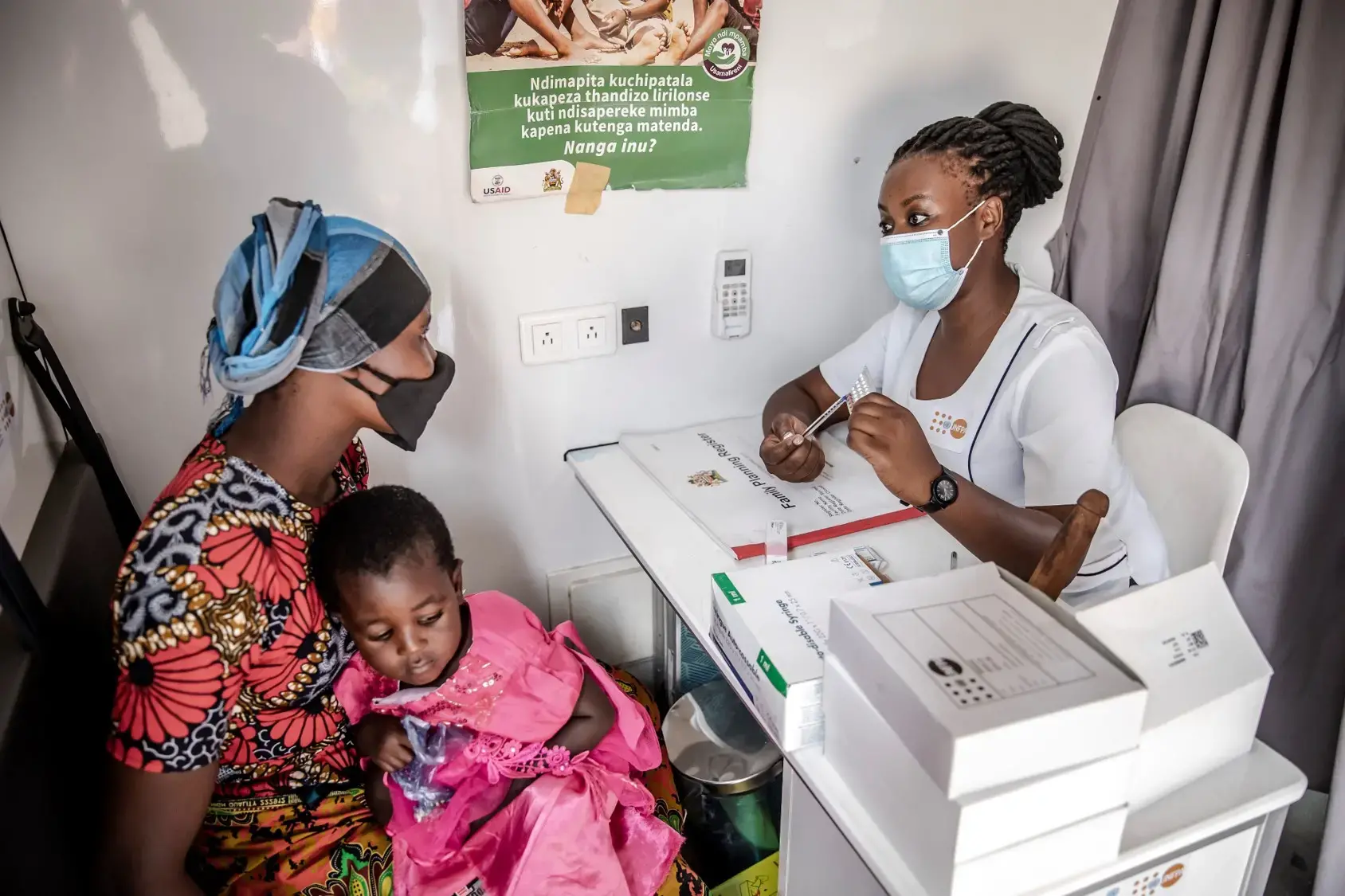The Sexual Reproductive Health and Rights (SRHR) programme in Malawi is aimed at ensuring universal access to quality sexual reproductive health rights and services for women, young people, and men, with a specific focus on reducing maternal mortality. The program is multifaceted, addressing issues ranging from health infrastructure challenges to clinical support, health in emergencies, human resources for health, pharmaceutical and medical commodities, and health management information systems.
Key Initiatives Supported by UNFPA:
Health Infrastructure:
Dilapidated health infrastructure has been a significant challenge to delivering quality healthcare services in Malawi. UNFPA has supported the refurbishment of Bwaila, Mulanje, and Nsanje district hospitals, increasing their operating theatres to 20. This enhancement has significantly reduced waiting times for access to comprehensive emergency obstetric and newborn care (EmONC) services, improving outcomes for pregnant women and newborns. In response to a cholera outbreak, UNFPA invested over $200,000 USD in restoring water works in Lilongwe, Dedza, and Mangochi, ensuring access to quality EmONC services and improving infection prevention.
Clinical Support:
UNFPA provides technical and financial support to the Ministry of Health for capacity-building in EmONC services, post-abortion care, and family planning. The organization also supports the training of midwives at the pre-service level, achieving a remarkable 100 percent passing rate over the past four years. Clinical support extends to the management of fistula patients, involving the training of clinical officers and health teams for fistula repair, surgery interventions, and rehabilitation for patients returning to their communities.
Health in Emergencies:
UNFPA plays a crucial role in responding to health emergencies, including the ongoing Covid-19 and cholera outbreaks. Collaboration with the Ministry of Health ensures the continuity of sexual reproductive health services during emergencies. This involves deploying additional staff in affected districts, providing outreach SRHR services, focusing on gender-based violence (GBV) components, and procuring Inter-Agency Reproductive Kits (IARK) for EmONC services. UNFPA also supports disaster-prone districts with the Minimum Initial Service Package (MISP) to meet the sexual reproductive needs of affected populations at the onset of humanitarian crises.
Human Resources for Health:
Contributing to the country's goal of ensuring a robust health system, UNFPA supports pre-service and in-service training of health workers, particularly those in maternal and neonatal health (MNH) care. The midwifery program supports the development and dissemination of standards through the Nurses and Midwives Council of Malawi (MCM), a key institution responsible for the education and regulation of midwives. This effort is crucial in delivering MNH services, including family planning.
Pharmaceutical and Medical Commodities:
Through the Reproductive Health Commodity Security program, UNFPA supports the Government of Malawi in ensuring the availability of quality family planning commodities and lifesaving reproductive health services. This involves technical and financial support in forecasting, quantification, procurement, and delivery to the last mile. Additionally, UNFPA builds the capacity of service providers and pharmacy technicians to ensure proper programming in the delivery of family planning services.
Health Management Information Systems:
The Health Management Information System (HMIS) is vital for policy development, program planning, and operational management. UNFPA provides IT support to various platforms, ensuring the availability of quality data in sexual reproductive health and rights. Smartphones and tablets have been provided to pharmacy technicians in focus districts, supporting data compilation for family planning services. At the district level, UNFPA continues to support Maternal and Perinatal Death Surveillance, using compiled data in the District Health Management Systems to track progress in averting maternal and neonatal deaths through proper analysis and interpretation


